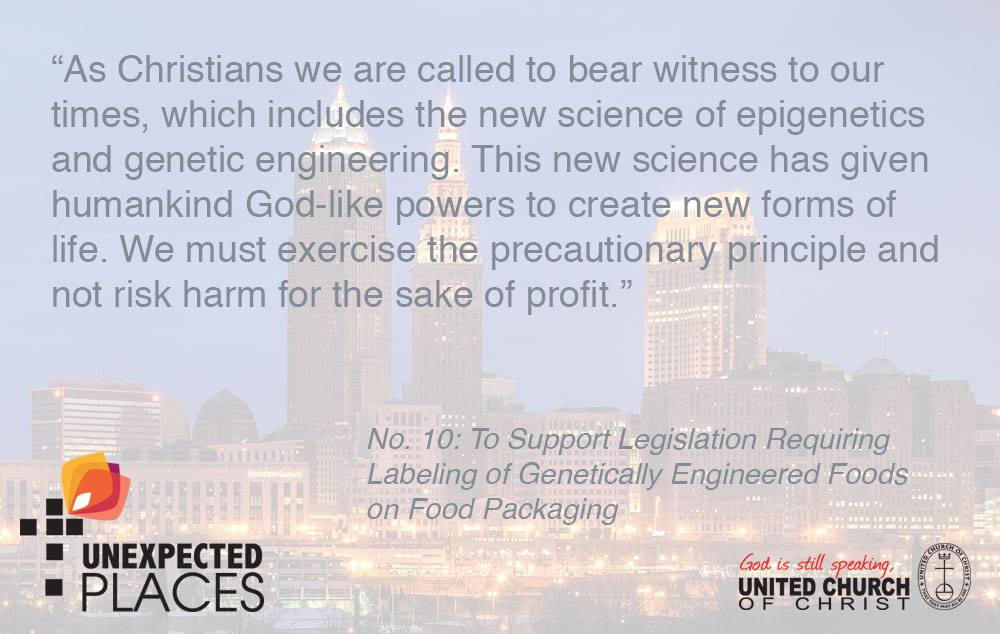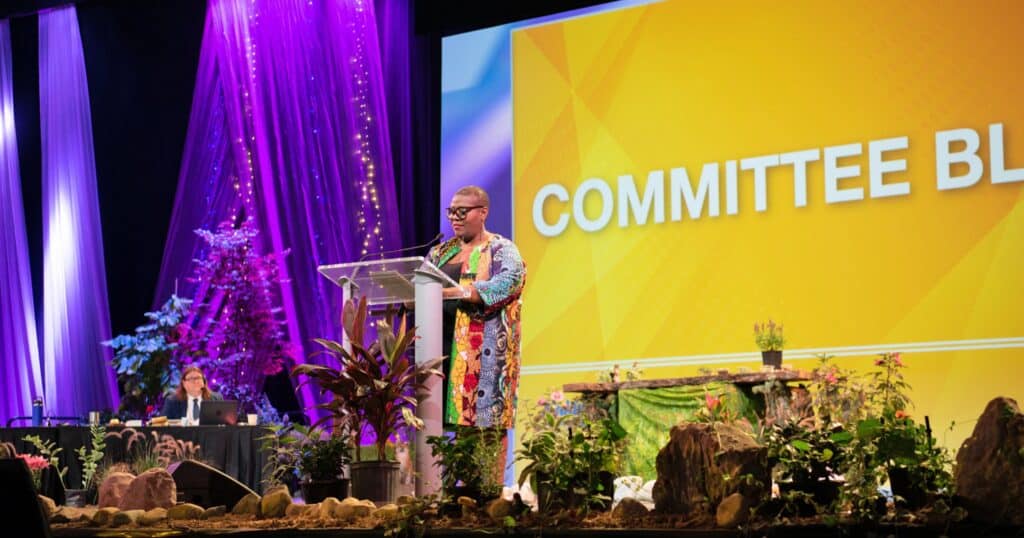Synod resolution calls for genetically engineered food labeling
 The Connecticut Conference of the United Church of Christ is concerned about the genetically modified ingredients found in the food available in grocery stores throughout the United States. Through a resolution submitted to the 30th General Synod, the conference is calling upon the denomination’s members to advocate for legislation that would require mandatory labeling of genetically engineered food to allow consumers to make informed choices about what they eat.
The Connecticut Conference of the United Church of Christ is concerned about the genetically modified ingredients found in the food available in grocery stores throughout the United States. Through a resolution submitted to the 30th General Synod, the conference is calling upon the denomination’s members to advocate for legislation that would require mandatory labeling of genetically engineered food to allow consumers to make informed choices about what they eat.
General Synod 2015 will take place June 26-30 in Cleveland.
“We want people to be more aware of the issue [of genetic engineering] and also to support legislation to label GMOs in their own states,” said Ian Skoggard, a member of the Environmental Ministry Team of the Connecticut Conference.
This resolution calls on the UCC to support the labeling of genetically engineered foods, and urges people of faith to be more aware of the new world of genetic engineering, known as the ability to combine genes from different species outside of naturally reproductive methods and create new forms. The resolution also encourages members to be aware of unethical government and business practices that have hindered public access to knowledge and independent studies of GE foods. The resolution aims for everyone to live healthier lives, and to understand the connection between good health and good food.
While genetic engineering may have benefits, according to the resolution, there are concerns about how the science is being applied, and faith communities must ensure that this power is responsibly exercised for the common good and not just for profit. Because the long-term health effects of consuming GE foods is still unknown, consumers should take responsibility to learn more about GE foods and make informed choices about what is best for their health and the health of their loved ones, especially vulnerable groups such as the young, the elderly, and those with special health conditions.
“There are a lot of concerns about GMOs (genetically modified organisms),” Skoggard said. “We don’t have all the answers and there are some risks. We want people to be able to decide for themselves if they want to take those risks.”
The Connecticut Conference has been part of the grassroots efforts that helped the Connecticut state legislature pass GE labeling bills. Similar efforts have taken place in Maine and Vermont that show the effectiveness of grassroots organizing, state lobbying, social media and public education. California, Colorado and Oregon have also seen ballot initiatives on GE food labeling, which have helped bring the issue to the forefront in those states. The General Synod resolution urges UCC leadership and members to engage in similar actions, and collaborate with other organizations to educate state representatives who have the power to introduce legislation, such as right-to-know labeling laws.
“This new science has given humankind God-like powers to create new forms of life. With that new power comes responsibility not to harm the least of us, those most vulnerable to radical changes in the nature and quality of our food supply,” the resolution states. “We must exercise the precautionary principle and not risk harm for the sake of profit.”
Related News
‘On My Mind Today’ shares thoughts and concerns from UCC’s Karen Georgia Thompson
In a rapidly changing and volatile world — where the latest news raises more questions...
Read MoreSelf-nominations requested for individuals to serve as General Synod committee chairs
As planning for General Synod is well underway, the General Synod staff are seeking...
Read MoreValentine’s Day was a great time to have a heart for the climate: UCC churches take action
The United Church of Christ Environmental Justice ministries recently invited congregations to...
Read More


